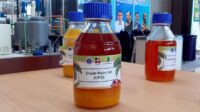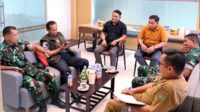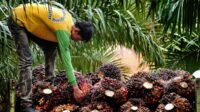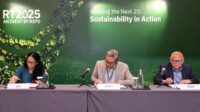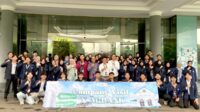PALMOILMAGAZINE, JAKARTA — A total of 139 student teams from 35 universities across Indonesia participated in the National Palm Oil Hackathon 2025, a nationwide digital innovation competition organized by the Indonesian Palm Oil Association (GAPKI) in collaboration with the Plantation Fund Management Agency (BPDP).
Carrying the theme “Accelerating the Socioeconomic Role of Palm Oil through Digital Innovation”, the competition aimed to spark technology-based solutions that can directly enhance the social and economic value of palm oil — from upstream plantations to downstream industries.
Held online from August to November 2025, the hackathon featured a comprehensive series of mentorship sessions, workshops, and intensive evaluations, guiding participants to develop functional prototypes or Minimum Viable Products (MVPs) applicable to the palm oil sector. Out of 118 shortlisted teams, four emerged as top winners after a rigorous judging process that assessed economic value, sustainability impact, technical feasibility, and scalability.
Also Read:
Youth Innovation Fuels Palm Oil Transformation
GAPKI Chairman Eddy Martono highlighted that Indonesia’s palm oil industry holds tremendous potential for continued growth through digital transformation.
“Palm oil has an extraordinary future. Through the National Palm Oil Hackathon 2025, we expect to see new technologies that can improve industry governance — from the use of AI and digital systems to innovative business models. The young innovators in this event have proven that they are ready to advance Indonesia’s palm oil sector,” said Eddy Martono, in a statement received by beige-heron-208544.hostingersite.com on Wednesday, November 12, 2025..
He added that the Hackathon serves as a strategic momentum to strengthen collaboration among industry players, academia, and the government in accelerating sustainable innovation within the palm oil sector.
Also Read: Indonesia’s Export Growth Surges 8.14% in 2025, Palm Oil Leads the Momentum
Winners of the Indonesia Palm Oil Hackathon 2025
1st Place — Team BiFlow (Afan Ghafar Al Hadad, Muhamad Rusydi Al Hakim, Fabiola Tasya Natalia Wijaya, and Marco Tjandrapurnama – Institut Teknologi Sepuluh Nopember, Surabaya)
Project: “RAPIDS: Inovasi Radar Non Invasif Berbasis Machine Learning untuk Deteksi Dini Ganoderma Boninense pada Kelapa Sawit” (RAPIDS: Non-Invasive Radar Innovation Based on Machine Learning for Early Detection of Ganoderma Boninense in Oil Palm)
Prize: IDR 75,000,000 + certificate.
2nd Place — Team SawITSmart (Aria Nalini Farzana, Farsya Rai’sah Fadhilia, Ditya Garda Nugraha, and Muhammad Yusril – Institut Teknologi Sepuluh Nopember, Surabaya)
Project: “Modernisasi Perkebunan Sawit dengan Robot Berbasis Artificial Intelligence untuk Pemupukan Presisi dan Pemantauan Berkelanjutan”(Modernizing Palm Plantations with AI-Powered Robots for Precision Fertilization and Sustainable Monitoring)
Prize: IDR 50,000,000 + certificate.
3rd Place — Team Jos Sawit (Muhammad Amir Abdurrozaq, Muhammad Fattachul Azis, Yasir Maarif, and Rivaldi Aditya Eka Wiryawan – Politeknik Elektronika Negeri Surabaya, PENS)
Project: “AI & IoT Portable untuk Monitoring, Pemetaan, dan Prediksi Sawit” (AI & IoT Portable System for Palm Monitoring, Mapping, and Prediction)
Prize: IDR 30,000,000 + certificate.
Special Category — Most Disruptive Business Model: Team Tancap.in (Muhammad Farhan Imanudin, Muhamad Rizqi Abdillah, and Fryma Zhafran Raihan – Institut Teknologi Bandung, ITB)
Project: “TANCAP: Digitalisasi Presisi untuk Produktivitas Sawit Berkelanjutan” (TANCAP: Precision Digitalization for Sustainable Palm Oil Productivity)
Prize: IDR 20,000,000 + certificate.
About the Indonesia Palm Oil Hackathon 2025
The Indonesian Palm Oil Hackathon 2025 is a structured digital innovation program jointly organized by GAPKI and the Plantation Fund Management Agency (BPDP). Through the hackathon approach, participants are encouraged to design digital-based functional prototypes that promote efficiency, sustainability, and the enhancement of the palm oil industry’s socioeconomic value. (P3)


